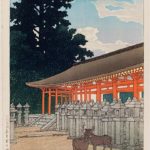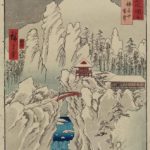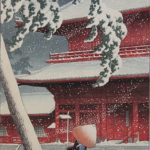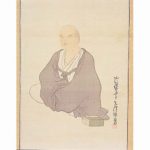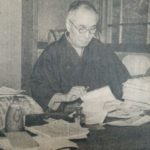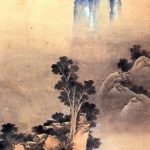Table of Contents
Suzuki Hisajo's haiku poems
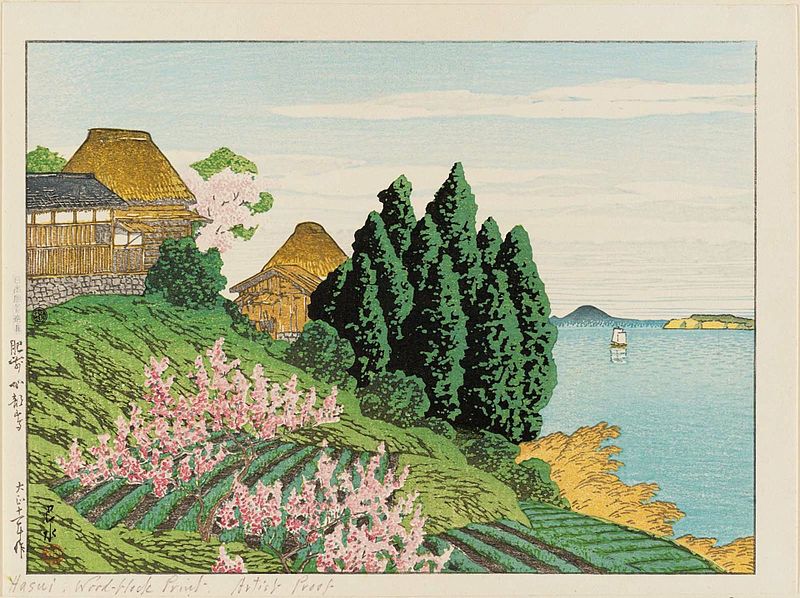
Suzuki Hisajo (1890- 1952) was a pioneer of female haiku poets who represent Japan. Takahama Koshi, who operated the haiku magazine Hototogisu (little cuckoo, named after Masaoka Shiki) and was a talented man of the haiku at the time, highly regarded her as “standing in a special position that did not allow the imitation of men”. She made a mark for herself on the magazine. But in later years, she was given the cold shoulder and couldn’t publish her works. The master wrote the epitaph of her tombstone.
Related Post
Shungyo no/Yume no at ou/Naga matsuge
縫ふ肩を ゆすりてすねる子 暑さかな
Nu’u kata wo/Yusuri te suneru ko/Atsusa kana
[English]While I’m sewing
My son shakes my shoulders and is in bad mood
It is hot
[Japanese]
洗ひ髪 かはく間月の 籘椅子に
Arai gami/Kawaku ma tsuki no/tou isu ni
[English]While my washed hair
Is getting dried
On a cane chair and the moon
[Japanese]
照り降りに さして色なし 古日傘
Teri furi ni/Sashi te iro nashi/Furu higasa
[English]For sunshine and rain
I put up the old umbrella
Lost its color
[Japanese]
打水に 木蔭湿れる 売店かな
Uchimizu ni/Kokage simere ru/Baiten kana
[English]With sprinkling of water
The shade of a tree gets wet
At a shop
[Japanese]
月の輪を ゆり去る船や 夜半の夏
Tsuki no wa wo/Yuri saru fune ya/Yowa no natsu
[English]The boat shook the ring
Of the moon and left
The summer midnight
障子しめて 灯す湯殿や 秋涼し
Shoji shime te/Tomosu yudono ya/Aki suzushi
[English]I closed the shōji doors
And lit a fire in the bathroom
It is cool autumn
[Japanese]
秋来ぬと サフアイア色の 小鰺買ふ
Aki konu to/Safaia iro no/Koaji kau
[English]Autumn hasn’t come
I buy sapphire colored
Small horse mackerel
[Japanese]
しろじろと 花びらそりぬ 月の菊
Shiro jiro to/Hanabira sori nu/Tsuki no kiku
[English]It is whitened
That the petals bend backward
Moon with the chrysanthemum
[Japanese]
朝寒や小さくなりゆく蔓の花
Asa zamu ya/Chii saku nari yuku/Tsuru no hana
[English]Morning chill
The flowers of vines
Become smaller
[Japanese]
秋空に つぶてのごとき 一羽かな
Akizora ni/Tsubute no gotoki/Ichi wa kana
[English]In the autumn sky
Like a stone
There is a bird
戯曲よむ 冬夜の食器 浸けしまま
Gesaku yomu/Fuyu yo no shokki/Tsukeshi mama
[English]I read a drama
The tableware at the winter night
Is left in the water
[Japanese]
更けて去る 人に月よし 北の風
The good moon for one
Who left late at night
The north wind
[Japanese]
ゆく年の 忙しき中に もの思ひ
Yuku toshi no/Isogaski ki naka ni/Mono omo i
[English]At the end of the year
In a busy time
I was lost in thought
[Japanese]
わが歩む 落葉の音の あるばかり
Waga ayumu/Ochiba no oto no/Aru bakari
[English]My walk
There is only the sound
Of the fallen leaves
[Japanese]
冬川や のぼり初めたる 夕芥
[English]Above the winter river
The evening dust
Goes up
Other famous Japanese poets’ haiku

